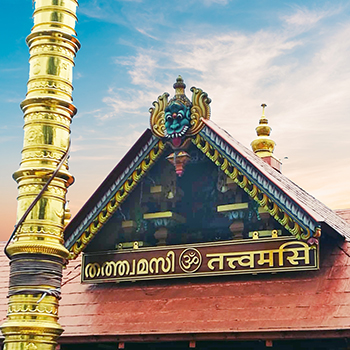“Knowing others is wisdom, knowing yourself is enlightenment.” Lao Tzu By Dr. Mohini Shinde

This thought-provoking quote by Chinese philosopher Lao Tzu was first said around 500 B.C. and has now been echoed by others in various ways down through the centuries. In similar words, Aristotle said, “Knowing yourself is the beginning of all wisdom. A famous declaration from the Upanishads, “Tat Tvam Asi,” or “Thou Art That,” encapsulates this profound spiritual truth. It conveys that the individual self (you) is not separate from the ultimate reality (that).
Of course, the fundamental truth is that you possess the greatest wisdom. You will have a deeper understanding of the world once you have that information.
Knowing others and knowing things is all well and good, but knowing yourself and knowing what makes you “tick” is an essential prerequisite for all greater and deeper knowledge. It is the road to enlightenment.
This phrase expresses a profound philosophical concept that originates from ancient wisdom and has roots in various cultural and spiritual traditions.
“Knowing others is wisdom” implies understanding people’s motivations, emotions, and actions, which can lead to effective communication, empathy, and negotiation skills—qualities often associated with wisdom.
“Knowing yourself is enlightenment,” which refers to deep introspection and self-understanding. Enlightenment is often associated with a profound, comprehensive understanding of oneself and one’s place in the world, which can be transformative. This knowledge includes understanding your strengths, weaknesses, desires, beliefs, motivations, and emotions and how these shape your actions and reactions.
When you achieve enlightenment, you not only understand yourself but also how your actions and thoughts affect others and the world around you. This level of self-awareness often leads to a more balanced, meaningful, and fulfilled life.
This kind of self-realization is a central concept in many philosophical and religious traditions, such as Buddhism, Taoism, and Hinduism, where enlightenment is a significant goal. It is also a cornerstone in psychology, especially in humanistic psychology, which emphasizes personal growth and self-actualization.
However, it’s important to note that the journey of self-discovery and understanding others is a lifelong process that requires patience, reflection, and honesty.
 Concept in Hinduism
Concept in Hinduism
In Hinduism, the concept of knowing oneself, often described as “self-realization” or “self-knowledge,” is pivotal in attaining spiritual enlightenment, also known as Moksha. The “self” here refers to the “atman,” which is the individual soul or consciousness, understood to be the eternal, unchanging essence of a person.
Hindu scriptures, especially the Upanishads, elaborate on this idea, asserting that the realization of the unity of Atman (the individual soul) with Brahman (the ultimate reality or universal soul) is the path to enlightenment. This realization leads to a state of inner peace, freedom, and eternal bliss, transcending the cycle of birth, death, and rebirth.
The process of attaining this knowledge involves self-inquiry, meditation, moral living, and often the guidance of a guru. It is an inward journey that peels off the layers of ego, illusions (Maya), and ignorance (Avidya), leading to the realization of one’s true divine nature.
However, it’s crucial to acknowledge the diversity within Hinduism; interpretations may vary among different philosophical schools, traditions, and practices.
 “Tat Tvam Asi” or “Thou Art That
“Tat Tvam Asi” or “Thou Art That
“Tat Tvam Asi,” or “Thou Art That,” is a key teaching from the Chandogya Upanishad, one of the oldest Upanishads, a set of philosophical texts in Hinduism. This Sanskrit phrase is one of the four Mahavakyas, or “Great Sayings,” of the Upanishads.
“Tat Tvam Asi” is often translated as “You are That.” Here’s what each of the words means:
“Tat”: This means “that” in Sanskrit, and it refers to Brahman, the ultimate, unchanging reality of the universe, according to Hindu philosophy. Brahman is the eternal truth and bliss, which are the source of everything, the ultimate cause, and the supreme goal of all existence.
“Tvam”: This means “you” in Sanskrit, and it refers to the Atman, the individual self. Atman is the innermost essence, the soul, or the self that is eternal and divine in every being.
“Asi”: This means “are” in Sanskrit. It represents the unity or non-duality between “Tat” and “Tvam.”
Therefore, “Tat Tvam Asi” asserts the fundamental unity of the individual’s soul (Atman) with the ultimate reality (Brahman). It expresses the idea that our true self is not this body or the ego but the divine and eternal reality.
Understanding and realizing “Tat Tvam Asi” can lead to Moksha, or liberation, a central goal in Hinduism. Moksha is liberation from the cycle of birth and death (Samsara), and it comes from the profound realization that the individual soul and the universe’s ultimate reality are one and the same. This realization is not merely intellectual but experiential and is often achieved through self-inquiry, meditation, and ethical living.
The teaching of “Tat Tvam Asi” offers a foundation for non-duality, or Advaita Vedanta, one of the classic Indian paths to spiritual realization. It promotes the understanding that there is no separation between the self and the rest of the universe, leading to a state of complete peace and fulfillment.
About the Author
Dr. Mohini Shinde is a professor of religions of India and has taught Hindu religion and world religion in several US universities before her retirement. Her research was on religion and politics in South Asia. In her research engagements, she lived several years in India where she studied vedas and upanishads. She lives in California with her husband.


























